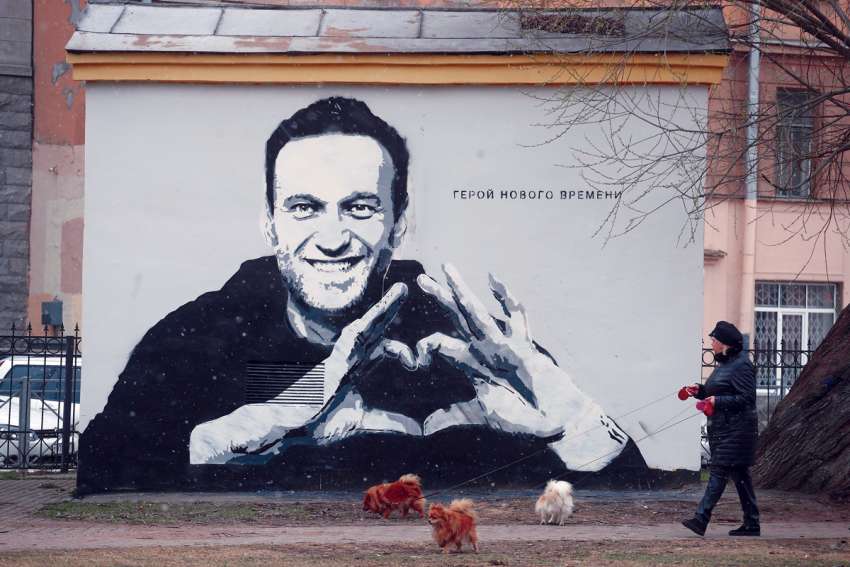“I’m ashamed to say that I’m a typical post-Soviet believer — I observe the fasts, I cross myself when I pass a church, but I don’t actually go to church very often,” he said in a 2012 interview with Russian novelist and essayist Boris Akunin (www.opendemocracy.net). His confreres among Russian dissidents mocked Christianity, and he didn’t know enough about his faith to combat their taunts.
My hunch is that Navalny sold himself short. How many dissidents leave their homeland, are poisoned by their native country’s government and then freely decide to return, knowing they will be arrested? Navalny had little or no interest in receiving the world’s applause. He was a man with a virtuous mission who knew he would likely be killed for carrying out that mission. Does that remind you of anyone?
“I like being a Christian and a member of the Orthodox Church. I like to feel part of something large and universal. I like the fact that there is a distinctive ethos and certain asceticism,” Navalny said in the interview. “But at the same time I am quite happy to live in a predominantly atheist milieu.”
With that outlook and with the anti-religiosity of Western media, the lack of mention of Navalny’s faith in the reports of his life and death is no surprise.
However, when we see someone so willing to give their life for the good of others, suspicions should arise that that person brings an other-worldly perspective to their worldly actions and commitments. At the centre of many movements for social change in the 20th century, one can find people with profound Christian commitment — Nelson Mandela, Archbishop Oscar Romero, Martin Luther King, Dorothy Day and Pope John Paul II among them. Those five and others were persecuted.
The Second Vatican Council restored the paschal mystery to the centre of the liturgy and of the Church’s self-understanding. The word “paschal” derives from the liberation of the descendants of Abraham from oppression in Egypt. Christianity sees that liberation as precursor of Christ’s act of salvation through His incarnation, Cross and resurrection.
Salvation is not a “spiritual” occurrence or process. It is self-sacrificing love which brings about liberation in our world, for individuals but also for whole societies. “No one has greater love than this, to lay down one’s life for one’s friends,” Jesus said on the eve of His crucifixion (John 15:13). Christ is the complete fulfillment of the paschal mystery. But those who give their lives for the salvation of their “friends” reveal the paschal mystery.
Navalny is known mainly as an advocate for democracy and for challenging the despotic regime of Vladimir Putin. But the root of that advocacy came out of his disgust with the financial corruption of Putin and his cronies. He came to public notice by publicizing and challenging the kleptocracy in Russian government-run corporations. By doing so, he stands in the tradition of the Old Testament prophets.
It is one thing to make abstract calls for freedom and democracy. But when you challenge the extravagant lifestyles of those who live off the suffering of the people and name those thieves publicly, as Navalny did, you will surely bear the weight of the oppressor. You have done the thing which no oppressor can face — unveiling the source of their lust for power.
By the time of his trial in 2021, Navalny’s faith had matured. He quoted the fourth beatitude, “Blessed are those who hunger and thirst for righteousness, for they will be filled.”
Then he went on to say, “I’ve always thought that this particular commandment is more or less an instruction to activity. And so, while certainly not really enjoying the place where I am, I have no regrets about coming back, or about what I’m doing. It’s fine because I did the right thing.
“On the contrary, I feel a real kind of satisfaction. Because at some difficult moment, I did as required by the instructions and did not betray the commandment.”
Putin claims to be the restorer of Orthodoxy by his attempt to conquer Ukraine. But has he ever opened his Bible? Navalny has, and by doing so he became a modern-day prophet of righteousness.
(Glen Argan writes his online column Epiphany at https://glenargan.substack.com.)


